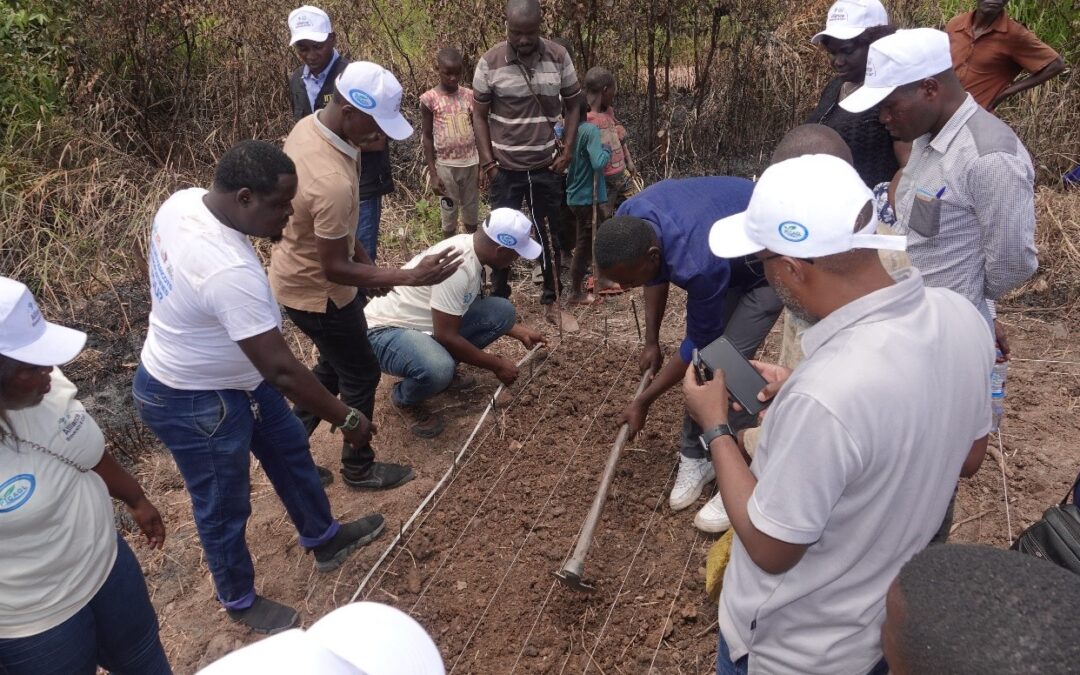By Justice Munthali, Napoleon Kajunju, Fadhili Kasubiri, Awotide Adebola, Yohane Chideya, and Lulu Lwamba
On 18 and 19 March 2024, the Pan Africa Bean Research Alliance (PABRA), a bean program under the International Centre for Tropical Agriculture (CIAT), in collaboration with the International Institute of Tropical Agriculture (IITA) conducted two strategic workshops in Kalemie, the capital of Tanganyika Province, to ensure continuity of activities for the Integrated Great Lakes Agricultural Growth Project (PICAGL). PICAGL is a World Bank-funded project, which has been running since 2019, registering great strides in Eastern Democratic Republic of Congo (DRC), but is set to conclude in 2024.
The two workshops were jointly planned and facilitated by both PICAGL and Beans for Women for Empowerment (B4WE) project teams. B4WE is another PABRA project, which is funded by the Global Affairs Canada (GAC) and is also strategic to the sustainability of PICAGL activities as it is poised to build on PICAGL achievements.
In the PICAGL project, PABRA focuses on a component that promotes the cultivation and consumption of biofortified crops, such as high iron beans and vitamin A maize. This initiative aims at combating micronutrient malnutrition (i.e., iron and vitamin A deficiencies), which affect a significant proportion of the population, including over 42.2% of the general population and more than half of pre-school-aged children in DRC. These deficiencies contribute to increased childhood mortality and susceptibility to infectious diseases.
The two workshops convened 34 participants from diverse sectors such as agriculture, nutrition, health, commerce, and education to leverage the potential of biofortified crops. The first workshop focused on imparting agribusiness skills to partners engaged in biofortified seed production and multiplication enterprises. Meanwhile, the second workshop centered on the creation of nutrition education (NE) modules and information, education, and communication (IEC) materials to support capacity building and promotional efforts.
The morning commenced with an engaging inaugural session aimed at fostering a participatory learning environment. Charles Katangala, the Officer In-Charge for IITA Kalemie, delivered welcoming remarks, underscoring PABRA’s role in promoting biofortified crops in Tanganyika province and highlighting PICAGL’s accomplishments in improving the livelihoods of households involved in the beans and maize value chains. Adebola Awotide, the Team Leader for B4WE in DRC, based in Bukavu, provided opening remarks, acknowledging the crucial administrative and technical support from IITA throughout the project implementation. Justice Munthali, the Interim Nutrition and Food Technology Coordinator for PABRA and Principal Investigator of PICAGL, then presented CIAT’s achievements under the project and outlined the objectives and expected outcomes of the two workshops.
Following the session, a group photo was captured, and the 34 participants were subsequently split into two groups: one dedicated to agribusiness, comprising 24 individuals, and the other focusing on the development of nutrition materials, with 10 participants. Each group delved into their respective areas of interest within a dynamic and engaging learning environment.
In the dedicated agribusiness meeting room, animated discussions unfolded regarding the progression of seeds provided to households through the PICAGL project. Representatives from state services such as SENASEM, SNV, and INERA, alongside agricultural multiplication cooperatives, exchanged insights on the challenges encountered in producing and marketing biofortified bean and maize seeds. Guided by PABRA’s Seed Systems Specialist, Fadhili Kasubiri, discussions emphasized the significance of biofortified seeds and explored strategies to optimize their production and marketing for both income generation and improved nutrition and health outcomes. To showcase the business opportunities within the bean value chain, hands-on demonstrations and tasting sessions of processed biofortified bean products were led by Napoleon Kajunju, Senior Research Associate for Nutrition under the B4WE project. These discussions profoundly enriched the first day of the agribusiness session, providing tangible insights into the burgeoning potential of the bean sector.
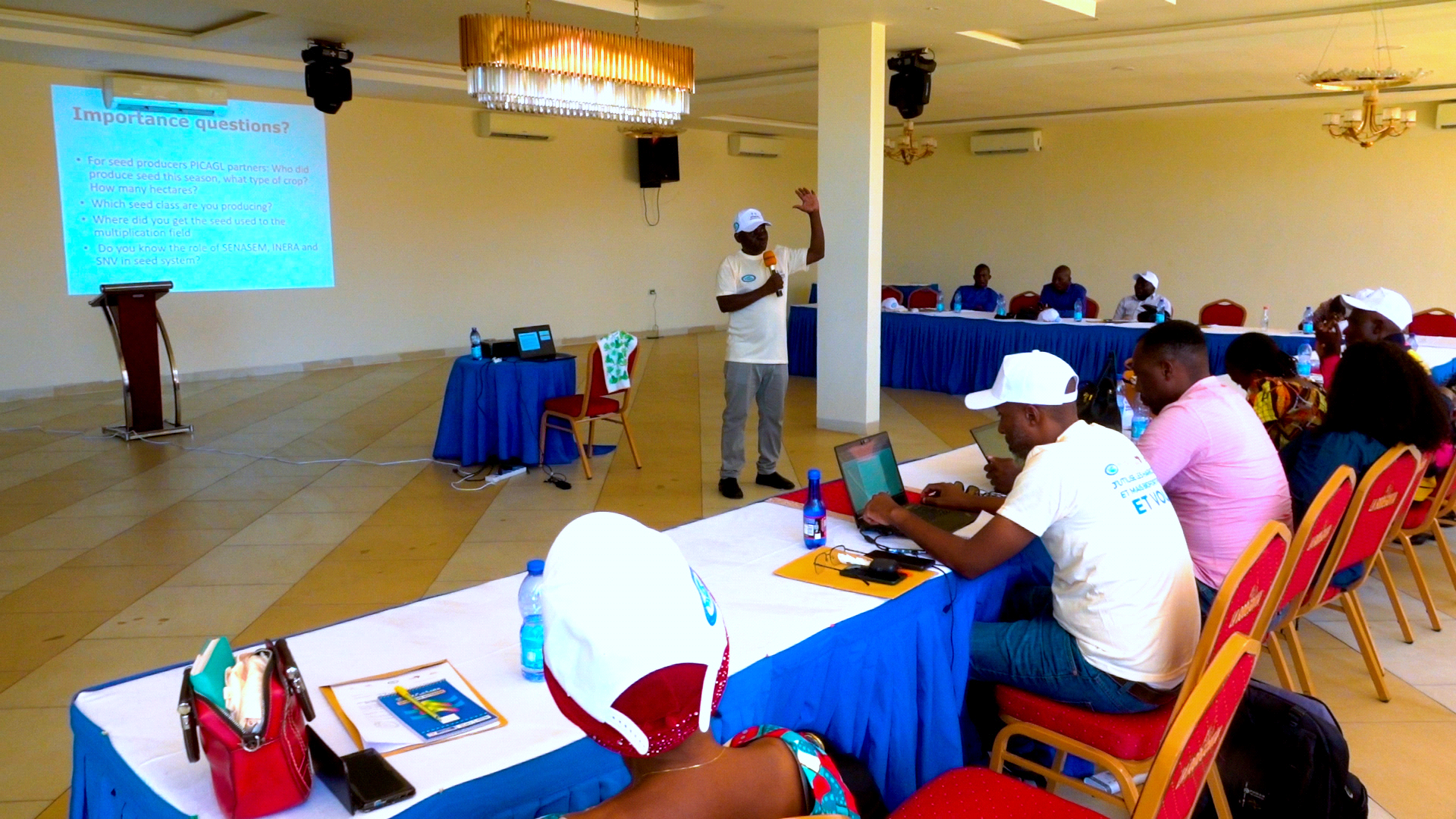
Figure 1: Fadhili Kasubiri, the PABRA-CIAT Seed Systems Expert making a presentation to the agribusiness group.
Concurrently, in another meeting room, a team of 10 national nutrition experts from PRONANUT, the Provincial Division of Health, World Food Programme (WFP), University of Kalemie, and IITA, under the guidance of Justice Munthali and Napoleon Kajunju, were actively engaged in crafting nutrition training materials and communication materials/tools. These included modules, PowerPoint presentations, key messages, leaflets, posters, and more, all aimed at bolstering the promotion of heightened consumption and utilization of biofortified beans and maize.
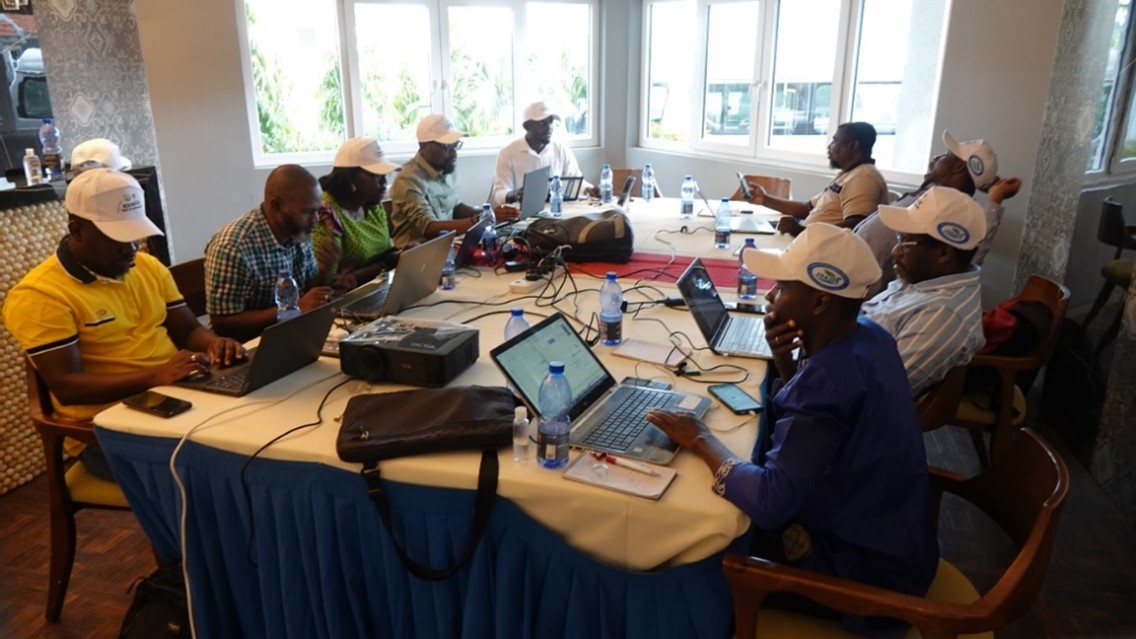
Figure 2: Nutrition Experts from PABRA-CIAT, IITA, PRONANUT, Provincial Division of Health, WFP and University of Kalemie in session during the development of training and promotion materials.
During the interactive co-creation and co-development sessions, the nutrition experts delved into various topics spanning production, value addition, and food safety, while also highlighting the benefits of biofortified beans and maize. Their focus centered on crafting training modules and awareness tools aimed at addressing food insecurity and advocating for a balanced, nutritious diet, with an emphasis on the incorporation of biofortified crops.
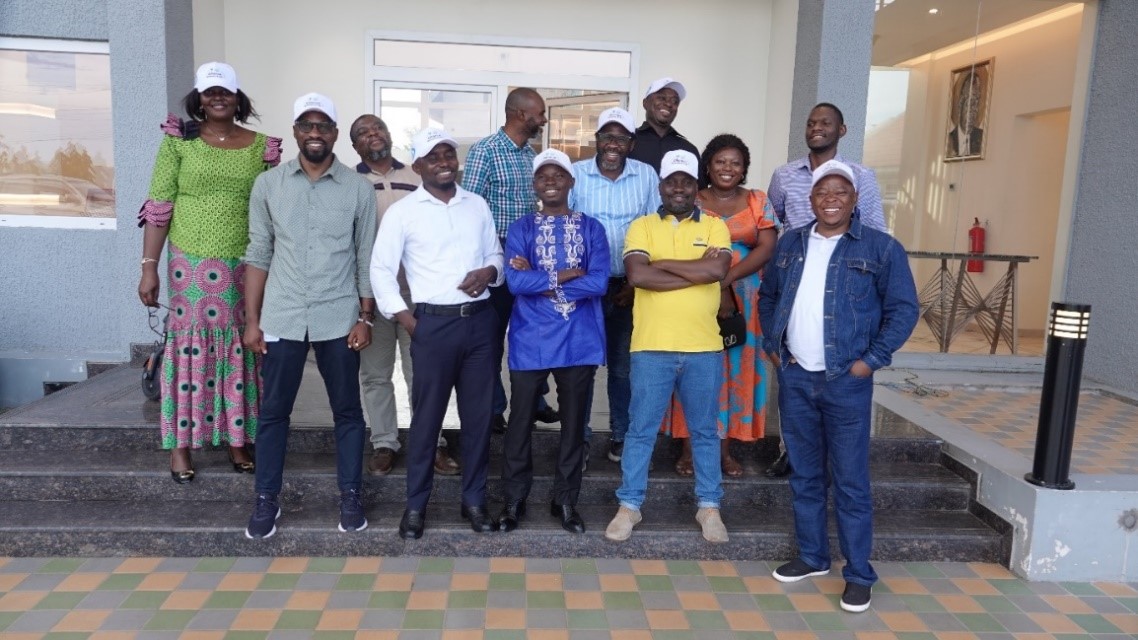
Figure 3: Group photo of nutrition experts from PABRA-CIAT, IITA, PRONANUT, Provincial Division of Health, WFP, and University of Kalemie.
On the second day, participants of the agribusiness workshop journeyed 32 km from Kalemie to the village of Pontien to partake in the establishment of a biofortified bean demonstration field. Under the supervision of CIAT experts and local government representatives, this practical exercise provided participants with firsthand experience in profitable seed cultivation and multiplication techniques.
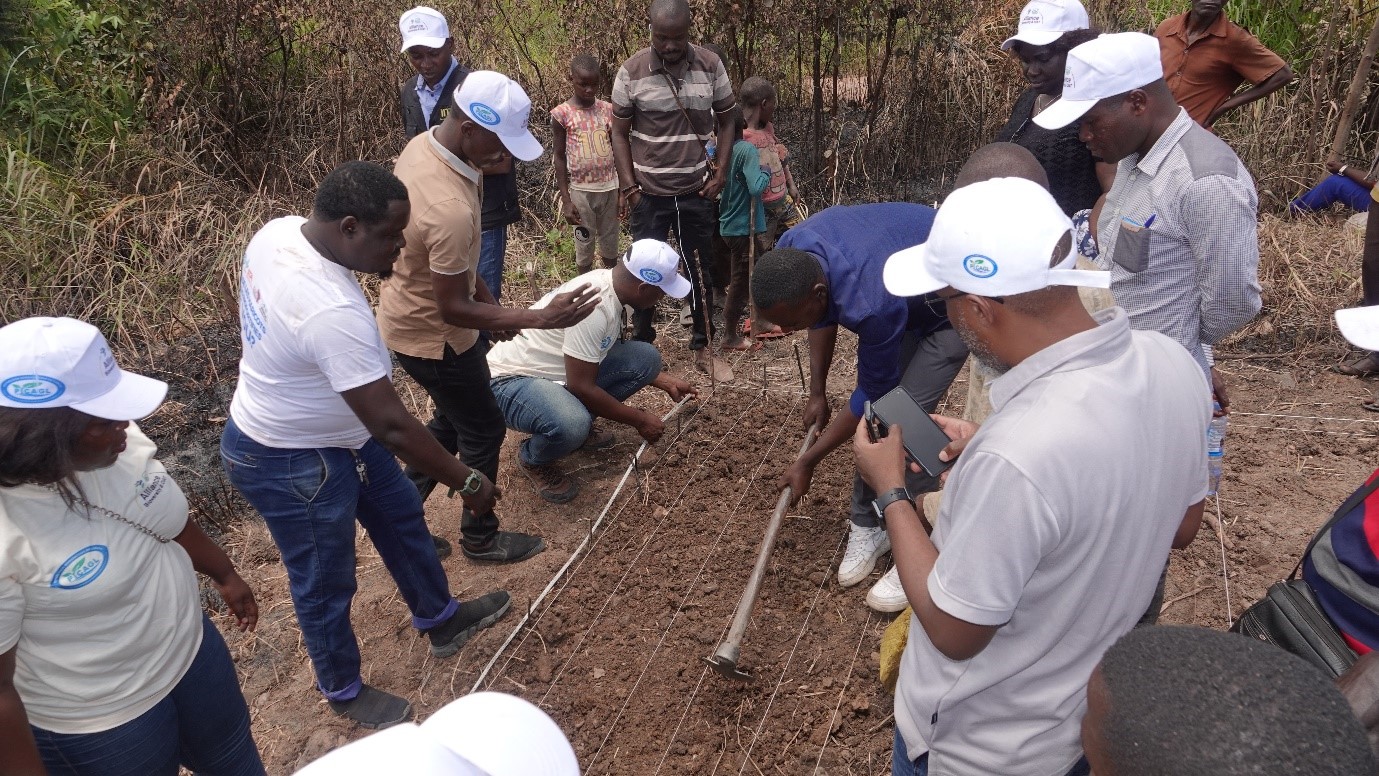
Figure 4: The agribusiness group during hands-on practice demonstrating good agricultural practices (GAP) to strengthen business-oriented seed systems.
Meanwhile, indoors, the discussions among the nutrition experts persisted, with a keen focus on tailoring training modules to suit the local and social contexts of the PICAGL project beneficiaries. By day’s end, participants collaborated to devise innovative awareness tools aimed at advocating balanced nutrition and preventing nutritional deficiencies across five thematic areas: i) nutrition, food security, food safety, hygiene and sanitation, and health; ii) biofortification for nutrition enhancement, with a focus on common beans and maize; iii) pathways connecting agriculture to nutrition; iv) food manufacturing/processing – utilization, value addition, and commercialization of common beans; and v) bean-based recipes (local and adapted). Outputs from this session comprised five draft training modules, five draft PowerPoint presentations, twenty-four draft key messages, and two draft leaflets/fliers, which were presented in a plenary session for review and validation by all experts.
These workshops transcended mere gatherings of experts; they served as catalysts for a sustainable movement aimed at transforming agriculture and nutrition in Tanganyika Province. Through initiatives like the PICAGL project, CIAT and its partners are dedicated to combating food insecurity while providing economic opportunities to farmers, particularly women, and enhancing their nutrition.
These events mark a significant stride toward a future where biofortified crops will take center stage in promoting the health and well-being of local communities. Indeed, the agribusiness workshop imparted marketing and agribusiness skills to partners, enabling them to sustain seed production and multiplication enterprises even beyond the project’s closure.
Likewise, the compilation and development of nutrition education materials, along with information and communication resources, will empower partners to continue promoting biofortified crops in a coordinated and sustainable manner long after the project’s conclusion.
For more details, contact
Justice Munthali
Senior Research Associate- Nutrition │ Crops for Nutrition and Health
Pan Africa Bean Research Alliance (PABRA)
Alliance of Bioversity International and CIAT
Africa Hub – Malawi Office
P.O. Box 158, Chitedze Agricultural Research Station, Lilongwe
+265 (0) 991 267 997
J.Munthali@cgiar.org


